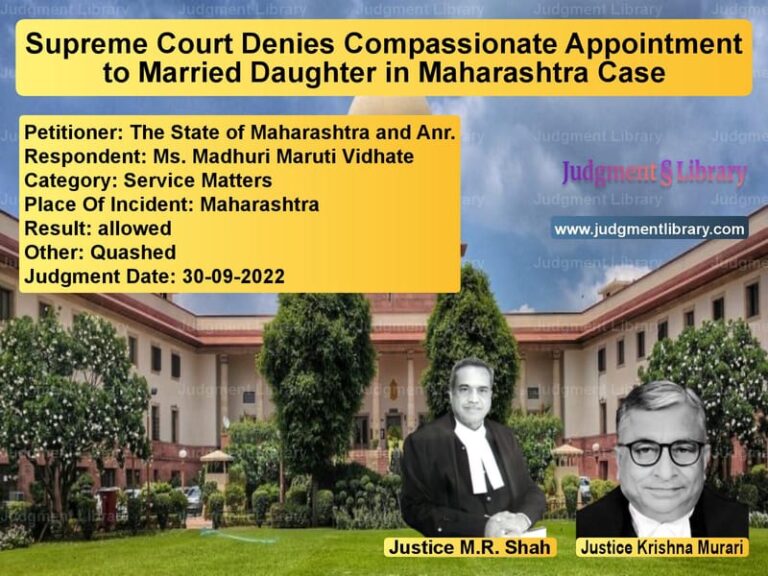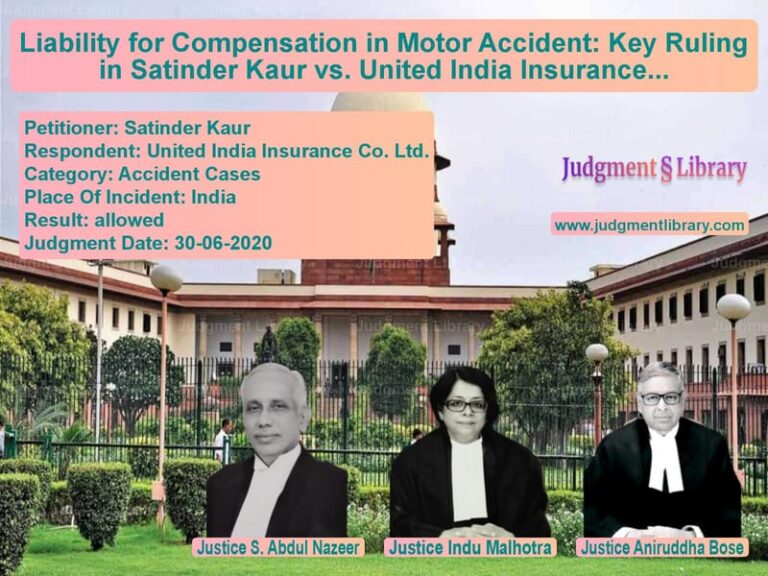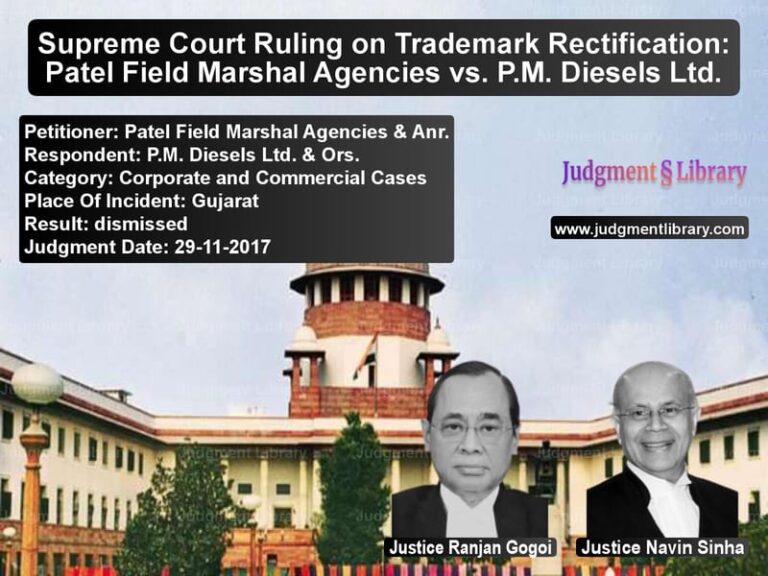CRPF Seniority Dispute: Supreme Court’s Ruling on Direct Recruits vs Promotees
The legal dispute in this case concerns the seniority rights between direct recruits and promotees in the Central Reserve Police Force (CRPF). The Supreme Court had to determine whether direct recruits, appointed through competitive examination, should be ranked higher than promotees, who were selected through departmental promotions. This case arose from an order passed by the Delhi High Court, which ruled in favor of the promotees by quashing the CRPF seniority list that had favored direct recruits.
Background of the Case
The dispute involved two categories of CRPF Sub Inspectors (General Duty): direct recruits and promotees. Two appeals were filed before the Supreme Court—one by direct appointees and the other by the Union of India. The High Court had ruled in favor of the promotees, ordering that they should be ranked senior to direct recruits.
The direct recruits were selected after an advertisement in June 2007. The written examination results were announced on July 21, 2009. The CRPF Directorate General issued a communication on October 5, 2009, to various CRPF units regarding the allotment of 880 selected candidates. These direct recruits were instructed to join by October 30, 2009, and they subsequently reported for training in January 2010.
On the other hand, the promotees had been appointed through an internal promotion process initiated in June 2009. Their results were declared on October 20, 2009, and their training commenced on November 23, 2009. The seniority list, issued on February 27, 2012, placed direct recruits above promotees.
Delhi High Court’s Decision
The promotee Sub Inspectors challenged the seniority list, arguing that they should be ranked above direct recruits because they joined earlier. The High Court ruled in favor of the promotees, stating:
- Since direct recruits had completed their training later than the promotees, the latter should be given seniority.
- According to Rule 8(e) of the CRPF Rules, promotees should be ranked senior if both categories were appointed on the same date.
- The High Court relied on the Supreme Court’s earlier ruling in Rohitash Kumar & Ors. v. Om Prakash Sharma & Ors., which held that appointment date was crucial in determining seniority.
Arguments Before the Supreme Court
Petitioners’ Arguments (Direct Recruits & Union of India):
- The seniority list was prepared based on established rules and office memoranda issued in 1978 and 2014.
- Seniority should be determined from the date of allotment (October 5, 2009) rather than the date of joining.
- The Office Memorandum dated March 4, 2014, supported the ranking method used by CRPF.
Respondents’ Arguments (Promotees):
- Seniority should be based on actual appointment and service commencement, not the allotment date.
- Direct recruits became full members of the force only after completing medical certification and oath-taking.
- Under Rule 8(e), promotees should be ranked senior if both categories had similar appointment dates.
Supreme Court’s Observations
The Supreme Court noted the following:
- The October 5, 2009, allotment letter was addressed to CRPF units, not to direct recruits.
- Direct recruits only became official members of CRPF after completing medical checks and accepting their appointments.
- Rule 8(e) explicitly states that if direct recruits and promotees are appointed on the same date, promotees will be ranked senior.
Supreme Court’s Judgment
The Supreme Court upheld the High Court’s ruling, stating:
“In view of Rule 8(e) of the Rules, the seniority is required to be determined from the date of appointment alone.”
The court dismissed the appeals filed by the direct recruits and the Union of India, affirming that promotees were entitled to seniority.
Key Takeaways from the Judgment
- The Supreme Court reiterated that seniority is based on the date of appointment, not the date of allotment or selection.
- The ruling clarified that until direct recruits completed their medical certification and took the oath, they could not be considered official CRPF members.
- The judgment reinforced Rule 8(e) of the CRPF Rules, ensuring fair ranking between direct recruits and promotees.
Impact of the Judgment
The decision has significant implications for recruitment and promotion processes in paramilitary forces. It establishes clear guidelines for determining seniority and prevents disputes over ranking between direct recruits and promotees.
For future recruitment processes, CRPF and other paramilitary forces may need to revise their seniority determination methods to avoid similar conflicts.
Conclusion
The Supreme Court’s ruling settled a long-standing dispute in CRPF’s recruitment and promotion system. It reaffirmed that procedural rules must be followed strictly in determining seniority and that direct recruits cannot claim seniority merely based on their selection process. This judgment ensures fairness and clarity in service matters within CRPF.
Petitioner Name: Bobindra Kumar & Anr..Respondent Name: Union of India & Ors..Judgment By: Justice L. Nageswara Rao, Justice Hemant Gupta.Place Of Incident: Delhi.Judgment Date: 27-08-2019.
Don’t miss out on the full details! Download the complete judgment in PDF format below and gain valuable insights instantly!
Download Judgment: Bobindra Kumar & Anr vs Union of India & Ors Supreme Court of India Judgment Dated 27-08-2019.pdf
Direct Downlaod Judgment: Direct downlaod this Judgment
See all petitions in Employment Disputes
See all petitions in Promotion Cases
See all petitions in Judgment by L. Nageswara Rao
See all petitions in Judgment by Hemant Gupta
See all petitions in dismissed
See all petitions in supreme court of India judgments August 2019
See all petitions in 2019 judgments
See all posts in Service Matters Category
See all allowed petitions in Service Matters Category
See all Dismissed petitions in Service Matters Category
See all partially allowed petitions in Service Matters Category







